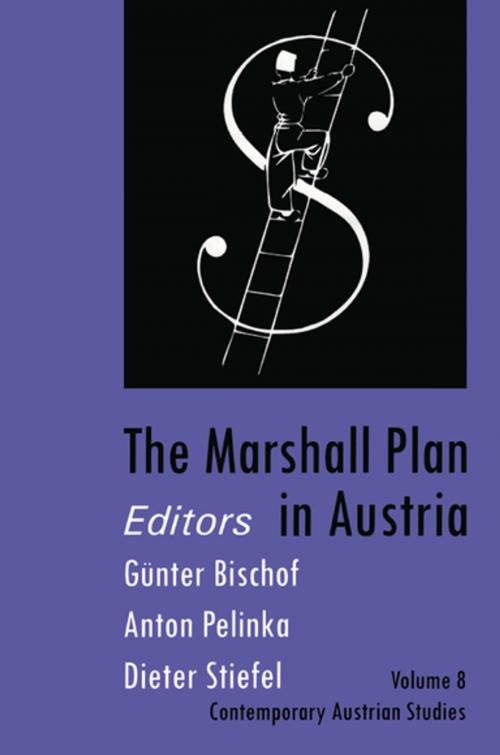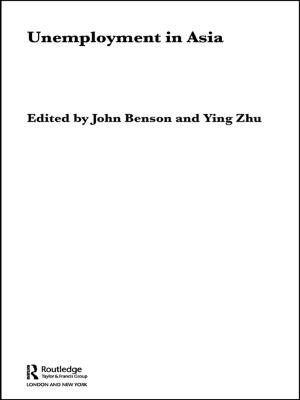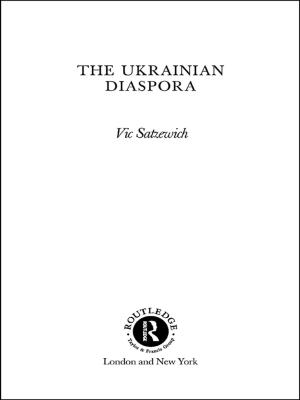The Marshall Plan in Austria
Vol 8
Nonfiction, History, European General, Social & Cultural Studies, Political Science| Author: | ISBN: | 9781351303507 | |
| Publisher: | Taylor and Francis | Publication: | December 20, 2018 |
| Imprint: | Routledge | Language: | English |
| Author: | |
| ISBN: | 9781351303507 |
| Publisher: | Taylor and Francis |
| Publication: | December 20, 2018 |
| Imprint: | Routledge |
| Language: | English |
Perhaps no country benefitted more from the Marshall Plan for assistance in reconstruction of Europe after World War II than Austria. On a per capita basis, each American taxpayer invested $80 per person in the Plan; each Austrian received $133 from the European recovery program, more than any other of the sixteen participating countries. Without the Marshall Plan, the Austrian economic miracle of the 1950s would have been unthinkable. Despite this, contemporary Austria seems to have forgotten this essential American contribution to its postwar reconstruction. This volume in the Contemporary Austrian Studies series examines how the plan affected Austria, and how it is perceived today.The political context of the Marshall Plan in Austria is addressed in essays by Jill Lewis and Matthew Berg. Dieter Stiefer describes the vast Soviet economic exploitation of their Austrian occupation zone. Andrea Komlosy shows how the Marshall Plan helped complete the division of Europe. Siegfried Beer suggests the secret involvement of the CIA in the Marshall Plan, while Hans J³rgen Schr÷der analyzes the effectiveness of Marshall Plan propaganda programs in Germany and Austria.The macroeconomic impact of Marshall Plan funds on Austrian economic policy is outlined by Hans Seidel. Kurt Tweraser, Georg Rigele and G³nter Bischof suggest the microeconomic importance of funds for the steel, electricity and tourist sectors of the Austrian economy. Wilhelm Kohler's sweeping analysis compares the American transfer of funds to postwar Europe with current debates about the cost of European Union enlargement. The legacy of the Marshall Plan is addressed by former Austrian Finance Minister Ferdinand Lacina. Kurt Loffler and Hans Fubenegger summarize the activities of the Economic Recovery Program Fund. Coming on the heels of the fiftieth anniversary of the Marshall Plan, this compelling overview of the Plan and its impact will be important for historians, those interested in international politics, and Austrian scholars.G³nter Bischof is professor of history and associate director of Center-Austria at the University of New Orleans; Anton Pelinka is professor of political science at the University of Innsbruck and director of the Institute of Conflict Research in Vienna; Dieter Stiefel is professor of social and economic history at the University of Vienna and executive secretary of the Schumpeter Society in Vienna.This volume offers a collection of articles, mostly by contemporary Austrian-born historians, touching on various phases of the Marshall Plan administered through the European Recovery Program (ERP) and its successors counterfunds' assistance to the present. A splendid introduction followed by the key thirteen articles on the plan is augmented by several nontopical essays and book reviews, along with a survey of Austrian politics in 1998. A number of articles emanated from a 1998 conference at the University of New Orleans. Both novice and specialist will appreciate this book."-The Historian
Perhaps no country benefitted more from the Marshall Plan for assistance in reconstruction of Europe after World War II than Austria. On a per capita basis, each American taxpayer invested $80 per person in the Plan; each Austrian received $133 from the European recovery program, more than any other of the sixteen participating countries. Without the Marshall Plan, the Austrian economic miracle of the 1950s would have been unthinkable. Despite this, contemporary Austria seems to have forgotten this essential American contribution to its postwar reconstruction. This volume in the Contemporary Austrian Studies series examines how the plan affected Austria, and how it is perceived today.The political context of the Marshall Plan in Austria is addressed in essays by Jill Lewis and Matthew Berg. Dieter Stiefer describes the vast Soviet economic exploitation of their Austrian occupation zone. Andrea Komlosy shows how the Marshall Plan helped complete the division of Europe. Siegfried Beer suggests the secret involvement of the CIA in the Marshall Plan, while Hans J³rgen Schr÷der analyzes the effectiveness of Marshall Plan propaganda programs in Germany and Austria.The macroeconomic impact of Marshall Plan funds on Austrian economic policy is outlined by Hans Seidel. Kurt Tweraser, Georg Rigele and G³nter Bischof suggest the microeconomic importance of funds for the steel, electricity and tourist sectors of the Austrian economy. Wilhelm Kohler's sweeping analysis compares the American transfer of funds to postwar Europe with current debates about the cost of European Union enlargement. The legacy of the Marshall Plan is addressed by former Austrian Finance Minister Ferdinand Lacina. Kurt Loffler and Hans Fubenegger summarize the activities of the Economic Recovery Program Fund. Coming on the heels of the fiftieth anniversary of the Marshall Plan, this compelling overview of the Plan and its impact will be important for historians, those interested in international politics, and Austrian scholars.G³nter Bischof is professor of history and associate director of Center-Austria at the University of New Orleans; Anton Pelinka is professor of political science at the University of Innsbruck and director of the Institute of Conflict Research in Vienna; Dieter Stiefel is professor of social and economic history at the University of Vienna and executive secretary of the Schumpeter Society in Vienna.This volume offers a collection of articles, mostly by contemporary Austrian-born historians, touching on various phases of the Marshall Plan administered through the European Recovery Program (ERP) and its successors counterfunds' assistance to the present. A splendid introduction followed by the key thirteen articles on the plan is augmented by several nontopical essays and book reviews, along with a survey of Austrian politics in 1998. A number of articles emanated from a 1998 conference at the University of New Orleans. Both novice and specialist will appreciate this book."-The Historian















